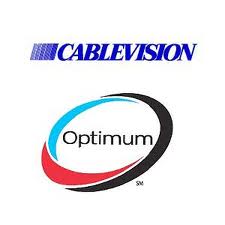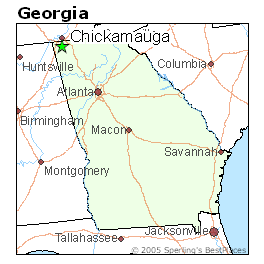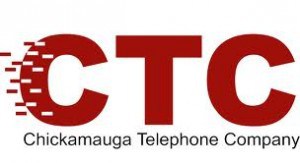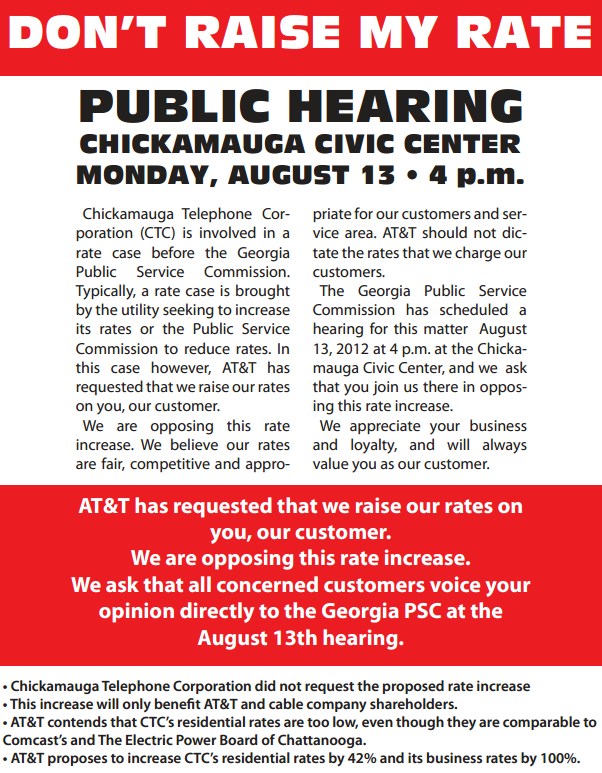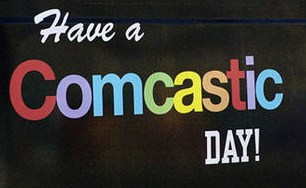 In a new twist, Comcast has announced rate increases for cable television that are roughly at the rate of inflation (2.3%) — the lowest rate increase for the company since 2001 — but is also hiking rates for Internet service at a substantially higher rate.
In a new twist, Comcast has announced rate increases for cable television that are roughly at the rate of inflation (2.3%) — the lowest rate increase for the company since 2001 — but is also hiking rates for Internet service at a substantially higher rate.
The company claims the Internet rate increase is partly due to the increased number of channels on its cable systems in Oregon and southwest Washington, as well as the cost to launch new interactive applications and multi-platform content that customers want and value.
Comcast’s rate increase for video represents the new reality for the cable business — companies continue with 7%+ increases in cable TV rates at the risk of cord cutting, analysts say. With cable television packages increasingly seen as ripe for cutting as they grow more expensive, cable operators are turning to broadband — a service customers can’t live without — to make up the difference.
Comcast had not touched broadband rates in the Pacific Northwest for seven years, until the company began hiking them in 2011. Monthly rates for the popular “Performance” Internet service (15Mbps) are going up again this year, from $48.95 to $51.95, according to The Oregonian. Prices are higher for standalone broadband service. Comcast’s Digital Starter TV package is increasing to $67.49 a month. Rates for customers on promotions will not increase until those offers expire.
But some customers complain Comcast is now charging nearly $200 a month for its triple-play package.
One customer told the newspaper after his introductory triple play promotion expired, the bill rose to $190 a month for phone, Internet, and cable service with two DVR boxes. The customer does not have any premium movie channels.
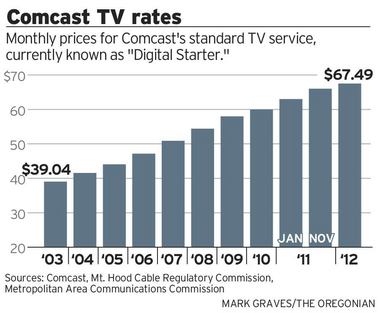
The Oregonian has tracked Comcast’s rates in the Pacific Northwest for almost a decade. The staircase of climbing prices for cable television is leveling off as Comcast makes up the difference from its Internet rates.
The newspaper noted Frontier Communications, which provides competition for Comcast in the suburbs of Portland, has given Comcast only a slight headache.
Frontier continues to offer its barely-advertised FiOS television package for around $65 a month, but customer complaints about Frontier’s service in the area have been reflected by Comcast’s growing subscriber numbers.
One Oregonian reader summed up his feelings about Frontier:
Frontier was atrocious. I don’t just mean bad, I mean an embarrassment to humanity […] which chimpanzees and dolphins laugh at us for putting up with. I’ve had Frontier service for a little over a year now only because there is nothing else where I live.
The nightmare started with them coming out hook up DSL at my new house, but instead of hooking me up, [they tore] out the demarc box on the house and left with it, lost all records of ever having talked to me, much less scheduling an appointment.
After finally getting Internet service a week late, the original [service order] showed up leading them to bill me for multiple accounts, which took five months to resolve. They never were able to prove to me I actually owed what I ultimately paid (I got them to within one bill’s worth of my calculated value and gave up).
Half of the time I’ve held off paying my bill until a day or two before the due date so it’s too late to mail a check and their online payment system is down, forcing me to call in my payment and pay a $3 service fee.
All of that is on top of the blatant theft of forcing customers who already own modems to pay a “modem rental fee” for a modem they aren’t renting.


 Subscribe
Subscribe
